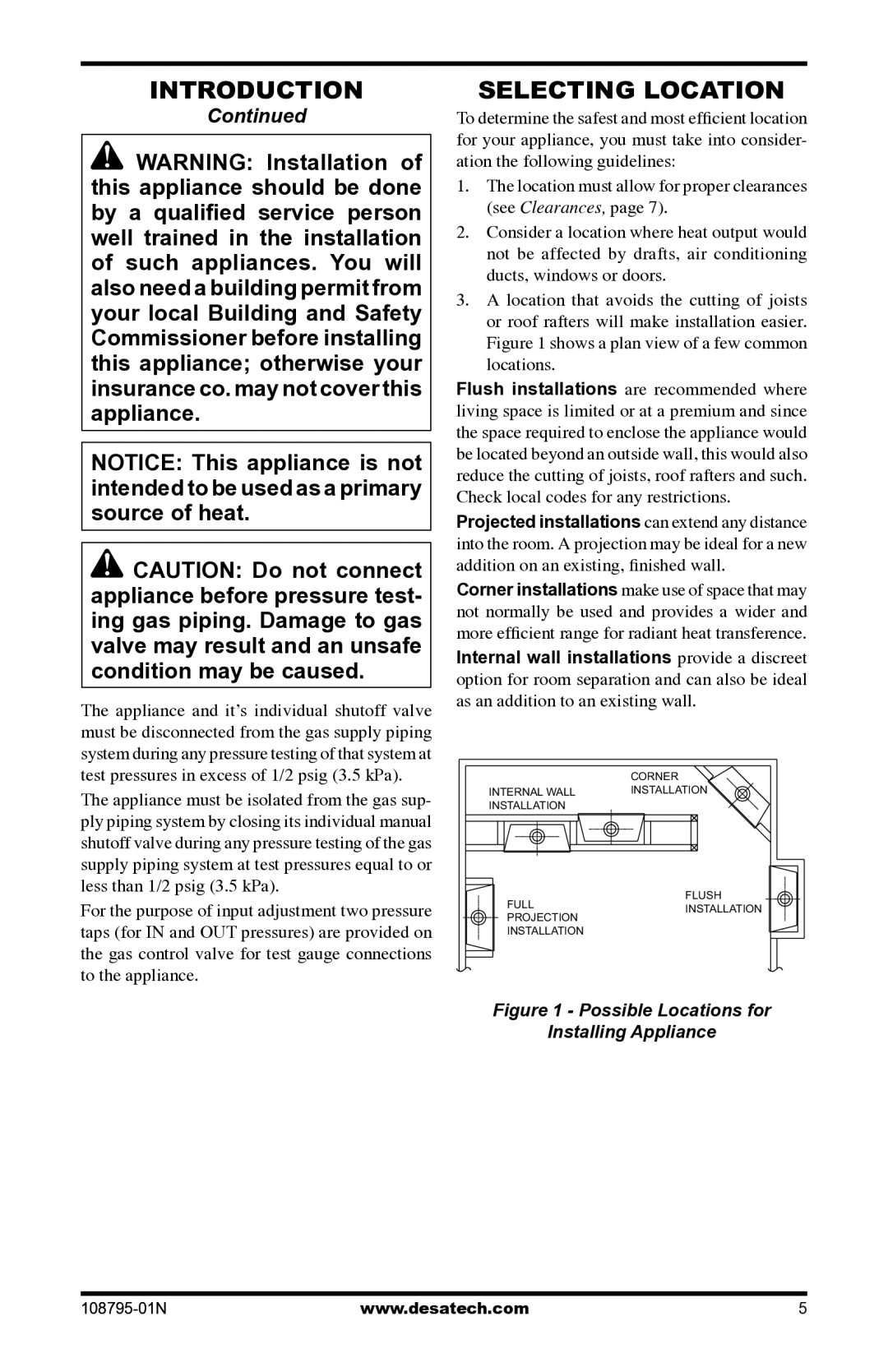
INTRODUCTION
Continued
![]() WARNING: Installation of this appliance should be done by a qualified service person well trained in the installation of such appliances. You will also need a building permit from your local Building and Safety Commissioner before installing this appliance; otherwise your insurance co. may not cover this appliance.
WARNING: Installation of this appliance should be done by a qualified service person well trained in the installation of such appliances. You will also need a building permit from your local Building and Safety Commissioner before installing this appliance; otherwise your insurance co. may not cover this appliance.
NOTICE: This appliance is not intended to be used as a primary source of heat.
![]() CAUTION: Do not connect appliance before pressure test- ing gas piping. Damage to gas valve may result and an unsafe condition may be caused.
CAUTION: Do not connect appliance before pressure test- ing gas piping. Damage to gas valve may result and an unsafe condition may be caused.
The appliance and itʼs individual shutoff valve must be disconnected from the gas supply piping system during any pressure testing of that system at test pressures in excess of 1/2 psig (3.5 kPa).
The appliance must be isolated from the gas sup- ply piping system by closing its individual manual shutoff valve during any pressure testing of the gas supply piping system at test pressures equal to or less than 1/2 psig (3.5 kPa).
For the purpose of input adjustment two pressure taps (for IN and OUT pressures) are provided on the gas control valve for test gauge connections to the appliance.
SELECTING LOCATION
To determine the safest and most efficient location for your appliance, you must take into consider- ation the following guidelines:
1.The location must allow for proper clearances (see Clearances, page 7).
2.Consider a location where heat output would not be affected by drafts, air conditioning ducts, windows or doors.
3.A location that avoids the cutting of joists or roof rafters will make installation easier. Figure 1 shows a plan view of a few common locations.
Flush installations are recommended where living space is limited or at a premium and since the space required to enclose the appliance would be located beyond an outside wall, this would also reduce the cutting of joists, roof rafters and such. Check local codes for any restrictions.
Projected installations can extend any distance into the room. A projection may be ideal for a new addition on an existing, finished wall.
Corner installations make use of space that may not normally be used and provides a wider and more efficient range for radiant heat transference.
Internal wall installations provide a discreet option for room separation and can also be ideal as an addition to an existing wall.
CORNER
INTERNAL WALL INSTALLATION
INSTALLATION
FLUSH
FULLINSTALLATION
PROJECTION
INSTALLATION
Figure 1 - Possible Locations for
Installing Appliance
www.desatech.com | 5 |
